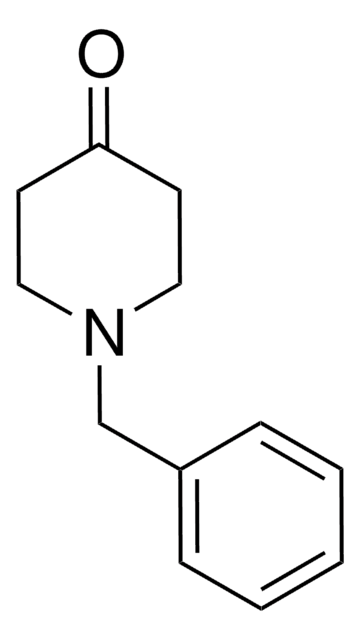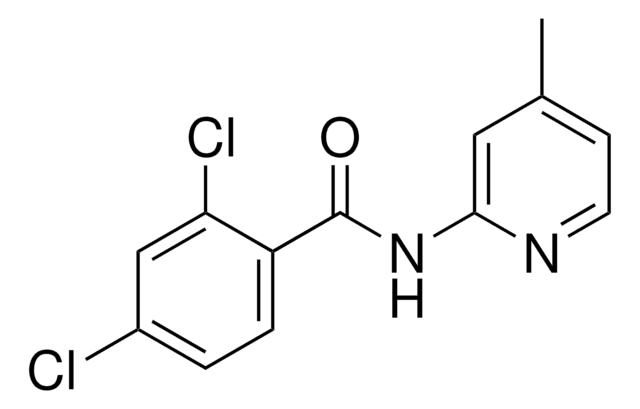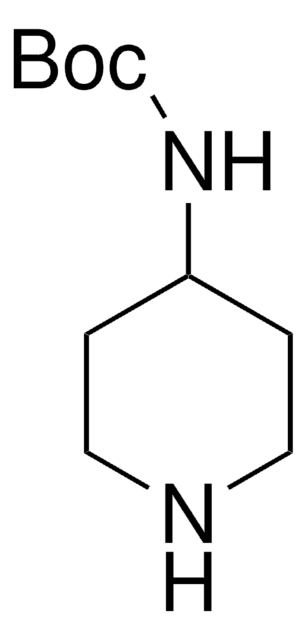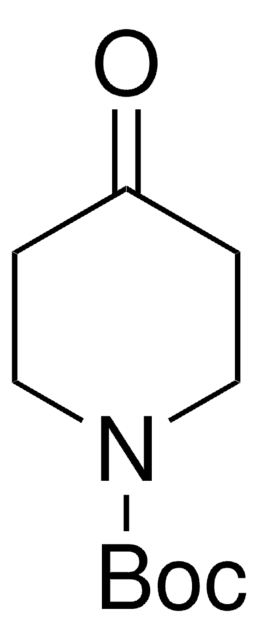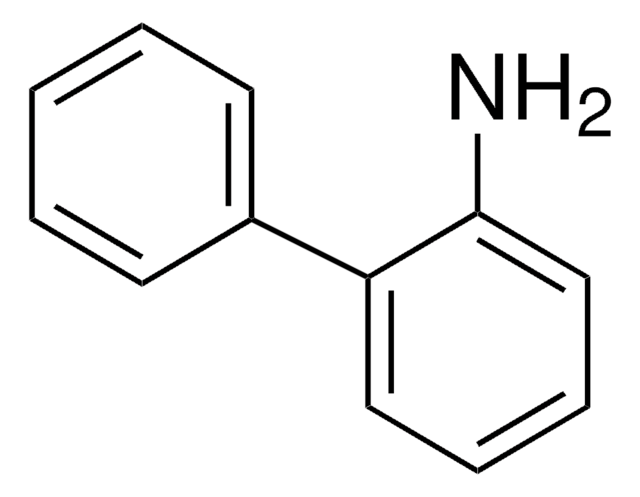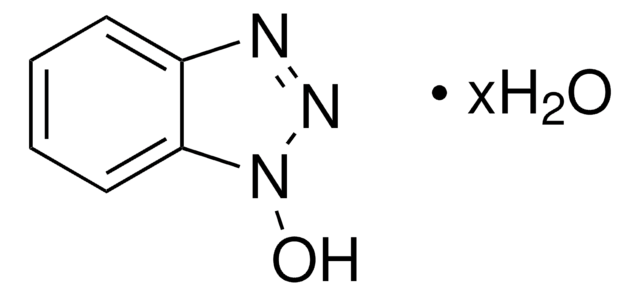195812
4-Amino-1-benzylpiperidine
98%
Synonym(s):
1-(Phenylmethyl)-4-piperidinamine
About This Item
Recommended Products
Quality Level
Assay
98%
form
liquid
refractive index
n20/D 1.543 (lit.)
density
0.933 g/mL at 25 °C (lit.)
functional group
phenyl
SMILES string
NC1CCN(CC1)Cc2ccccc2
InChI
1S/C12H18N2/c13-12-6-8-14(9-7-12)10-11-4-2-1-3-5-11/h1-5,12H,6-10,13H2
InChI key
YUBDLZGUSSWQSS-UHFFFAOYSA-N
Gene Information
rat ... Grin2a(24409)
Looking for similar products? Visit Product Comparison Guide
Related Categories
Application
- butyl 4-amino-1-piperidineacetate, key intermediate required for the synthesis of butyl 4-[(4-amino-5-chloro-2-methoxybenzoyl)amino]-1-piperidineacetate
- 5-alkylimino-1,2,4-thiadiazolidine-3-ones, such as 4-ethyl-5-[imino-[1-(phenylmethyl)-4-piperidinyl]]-2-methyl-1,2,4-thiadiazolidin-3-one and 4-benzyl-5-[imino-[1-(phenylmethyl)-4-piperidinyl]]-2-isopropyl-1,2,4-thiadiazolidin-3-one
- glycyrrhetinic acid derivatives
Highly selective inhibitors of p38a mitogen-activated protein kinase
Antiplasmodial compounds
Dual activity cholinesterase and Aβ-aggregation inhibitors
Muscarinic acetylcholine receptor antagonist and beta 2 adrenoceptor agonists
Photostable near-infrared cyanine dyes
99mTc-labeled piperidine analogues for targeting sigma receptors
Signal Word
Warning
Hazard Statements
Precautionary Statements
Hazard Classifications
Skin Irrit. 2
Storage Class Code
10 - Combustible liquids
WGK
WGK 3
Flash Point(F)
230.0 °F - closed cup
Flash Point(C)
110 °C - closed cup
Personal Protective Equipment
Regulatory Listings
Regulatory Listings are mainly provided for chemical products. Only limited information can be provided here for non-chemical products. No entry means none of the components are listed. It is the user’s obligation to ensure the safe and legal use of the product.
FSL
Group 4: Flammable liquids
Type 3 petroleums
Hazardous rank III
Water insoluble liquid
JAN Code
195812-5G:
195812-VAR:
195812-BULK:
195812-500G:
195812-1KG:
195812-100G:
195812-25G:
Choose from one of the most recent versions:
Already Own This Product?
Find documentation for the products that you have recently purchased in the Document Library.
Customers Also Viewed
Our team of scientists has experience in all areas of research including Life Science, Material Science, Chemical Synthesis, Chromatography, Analytical and many others.
Contact Technical Service



